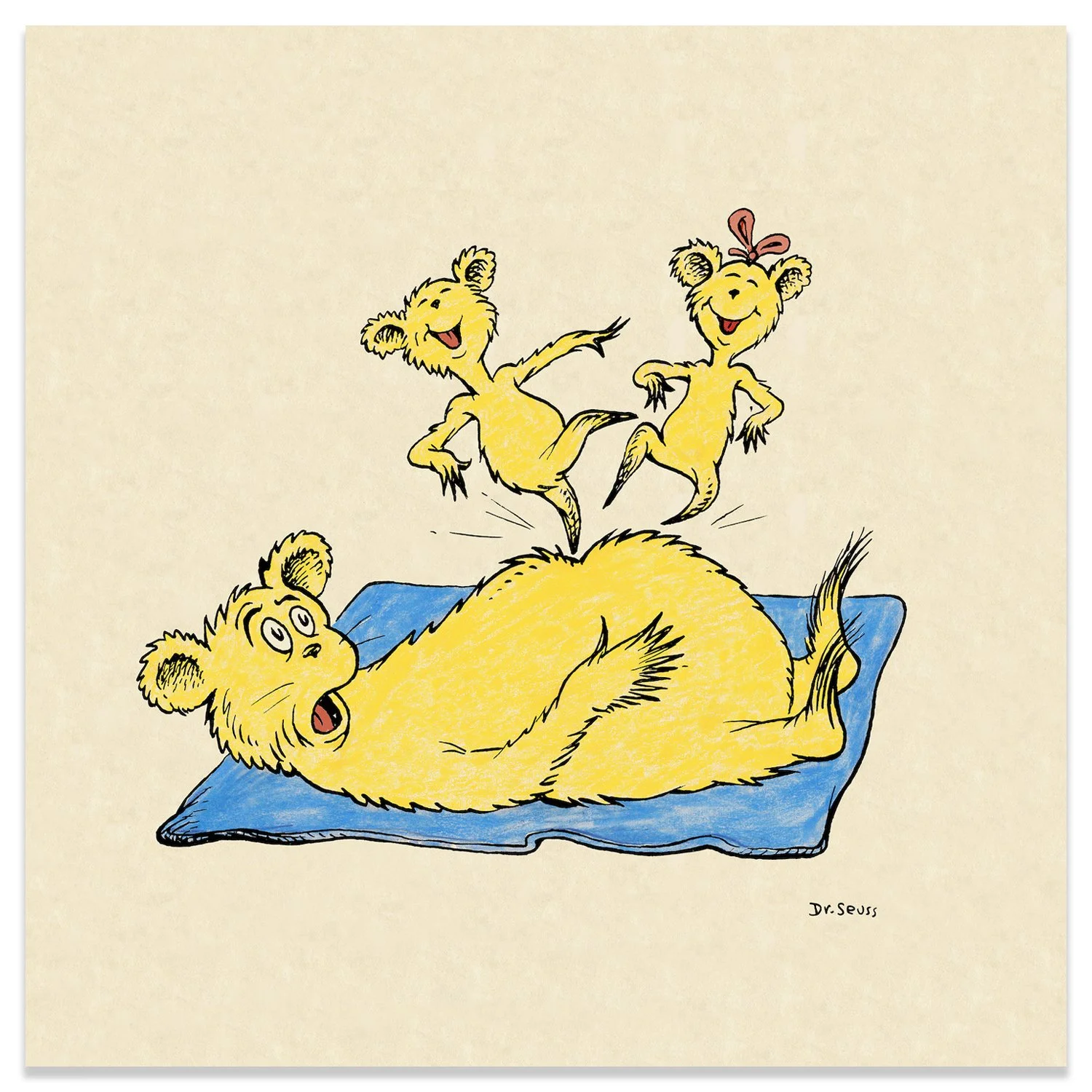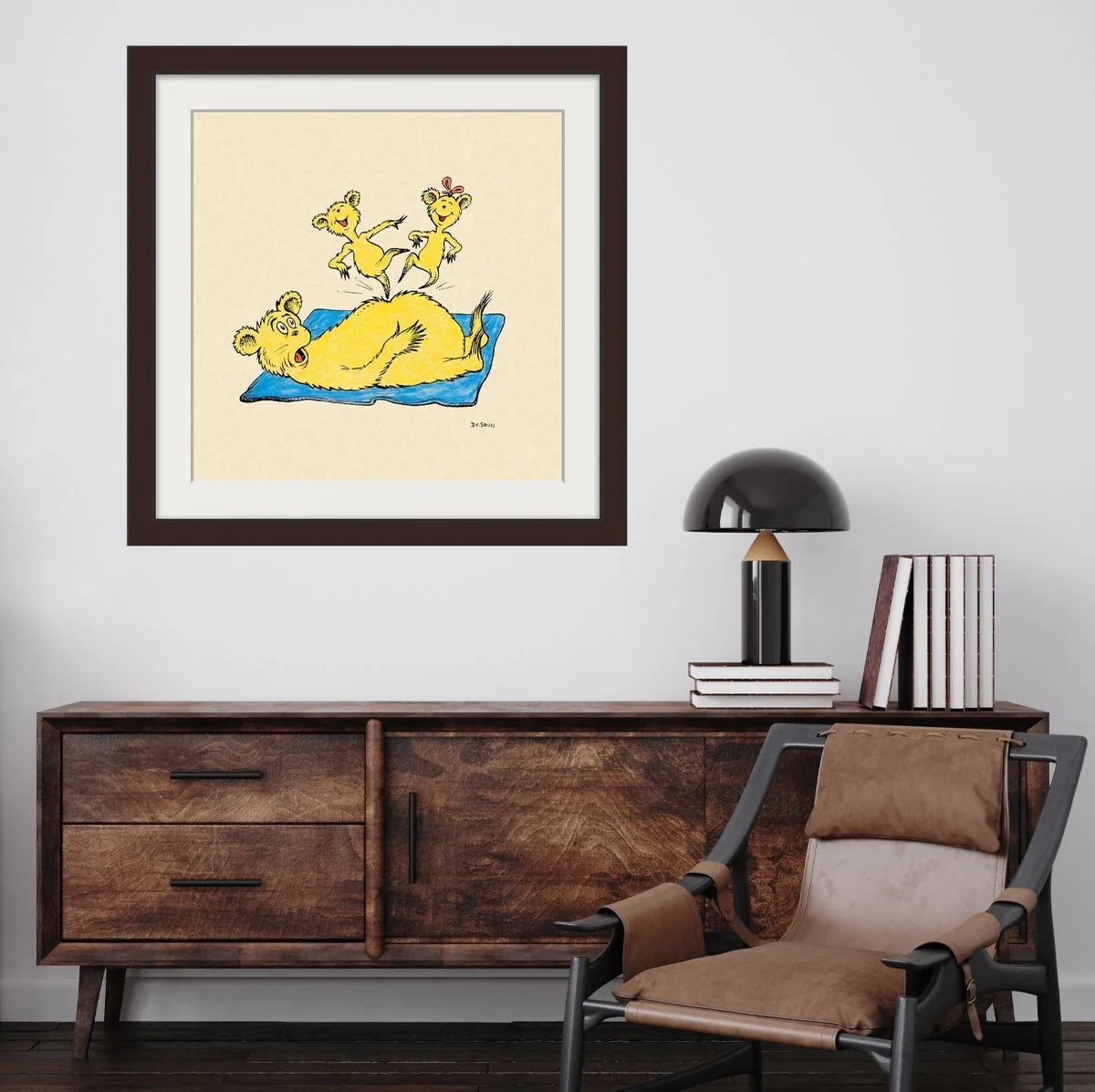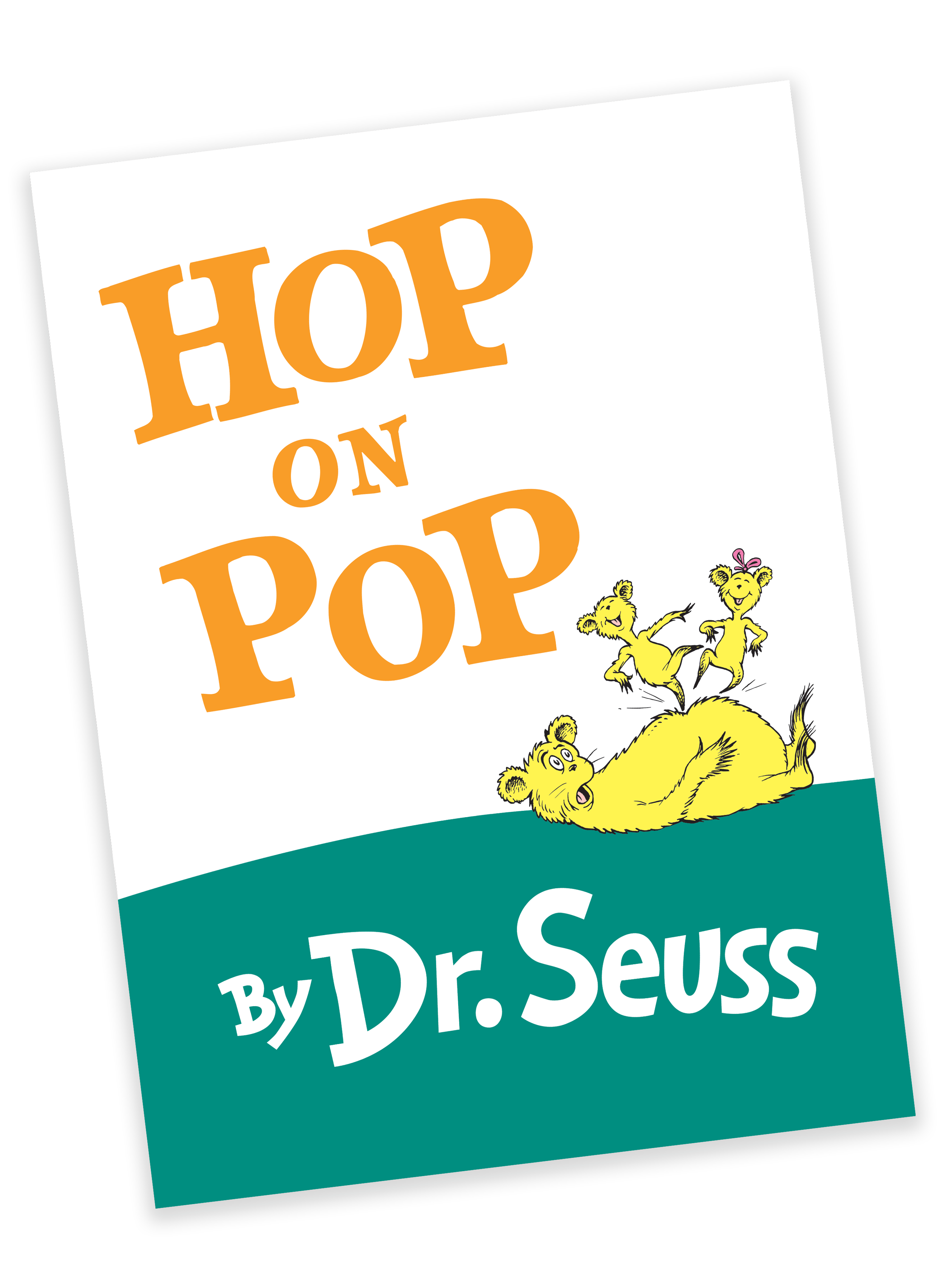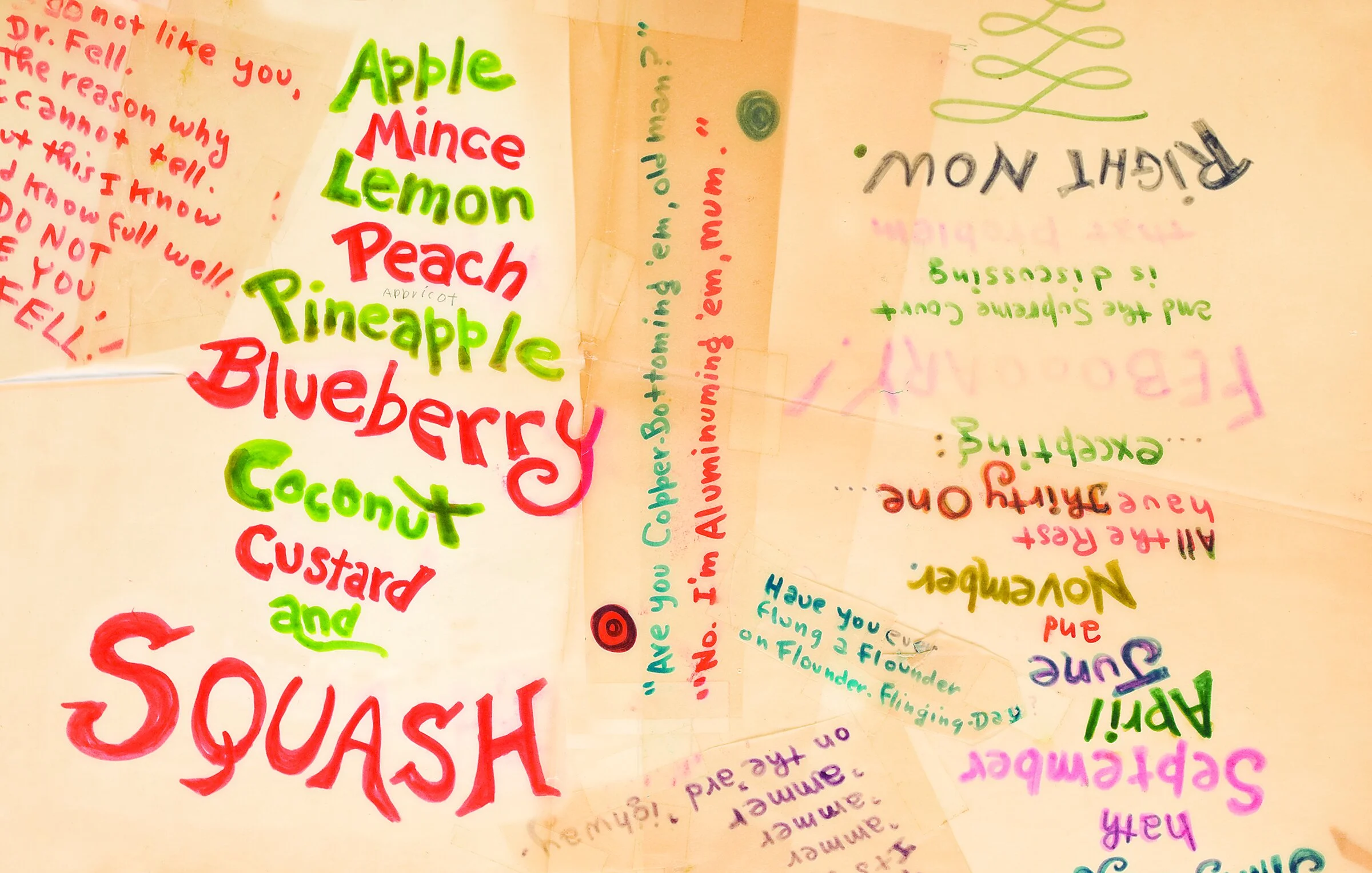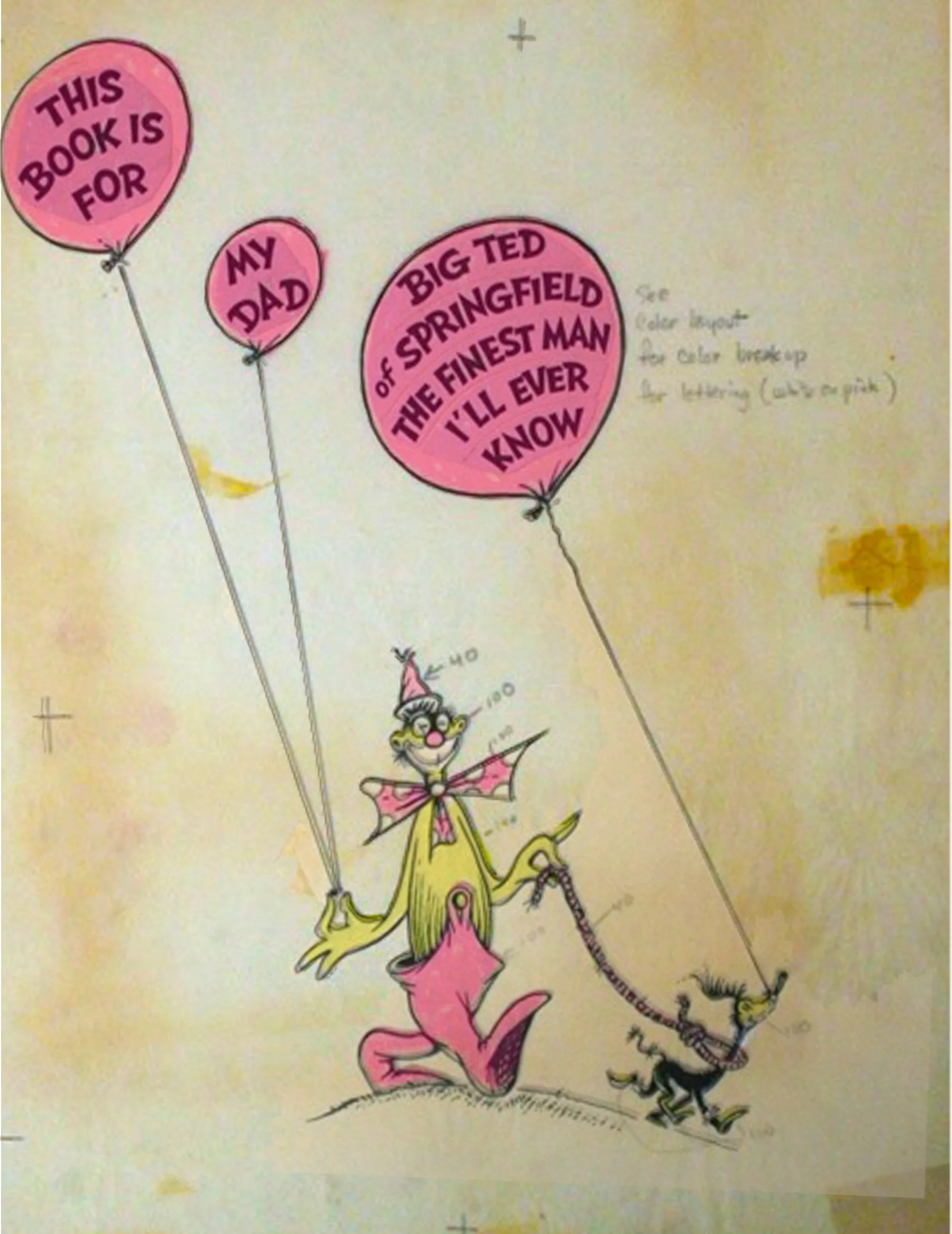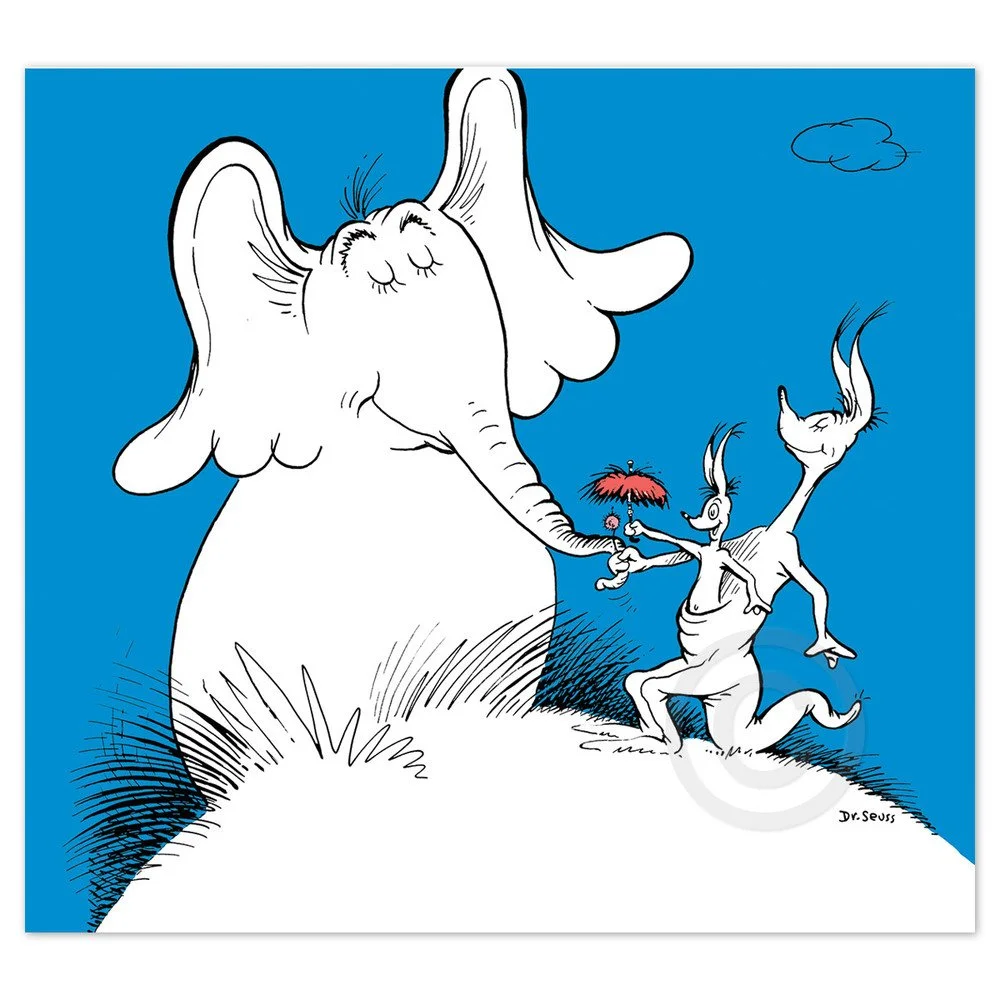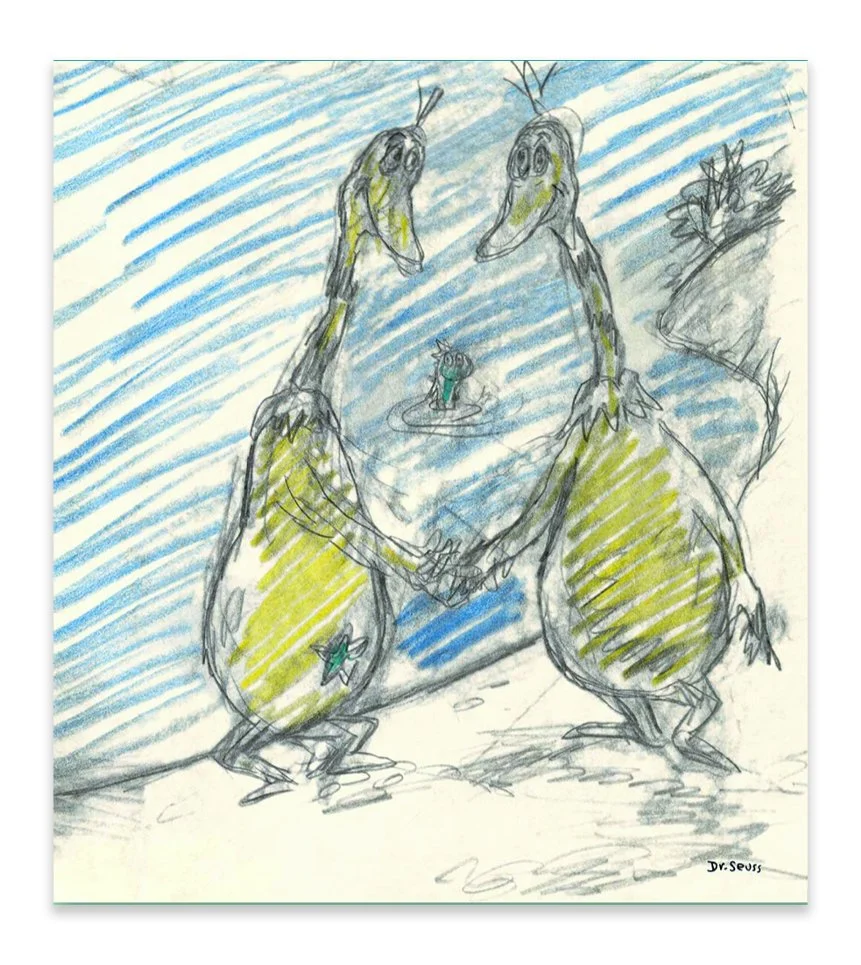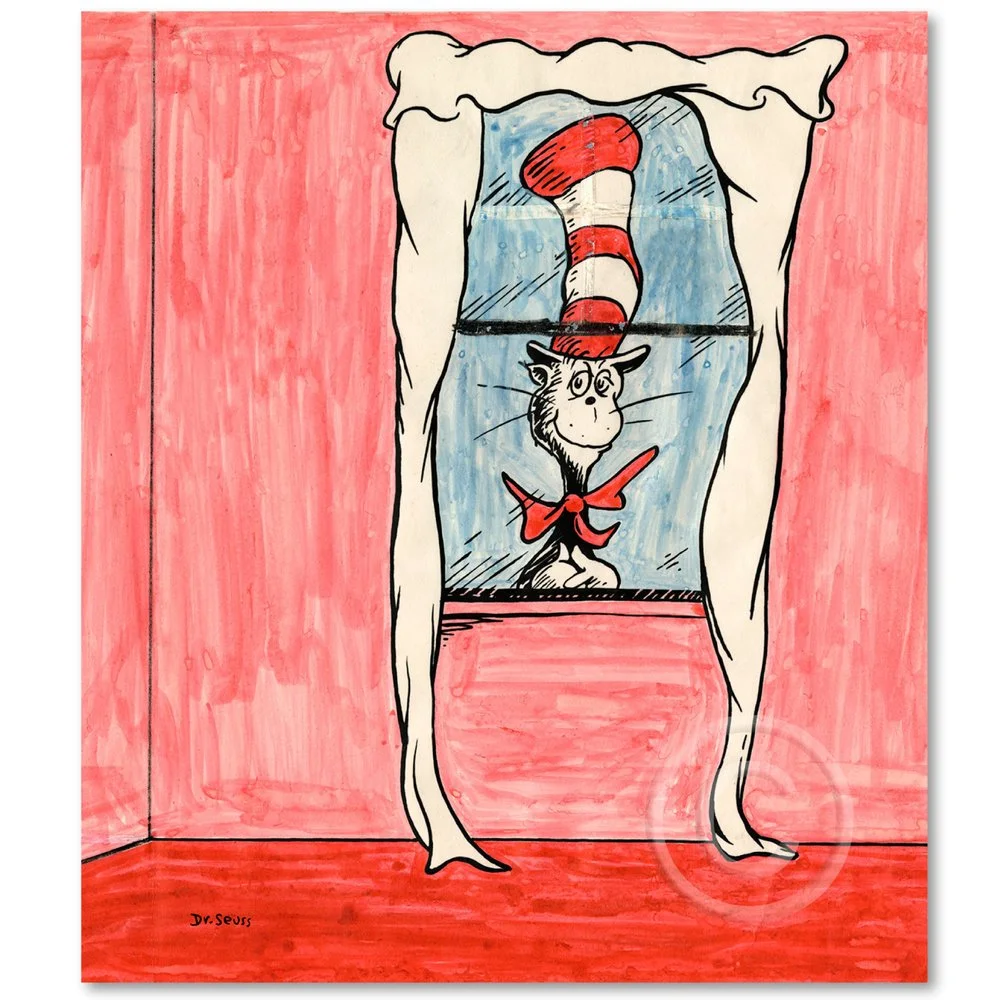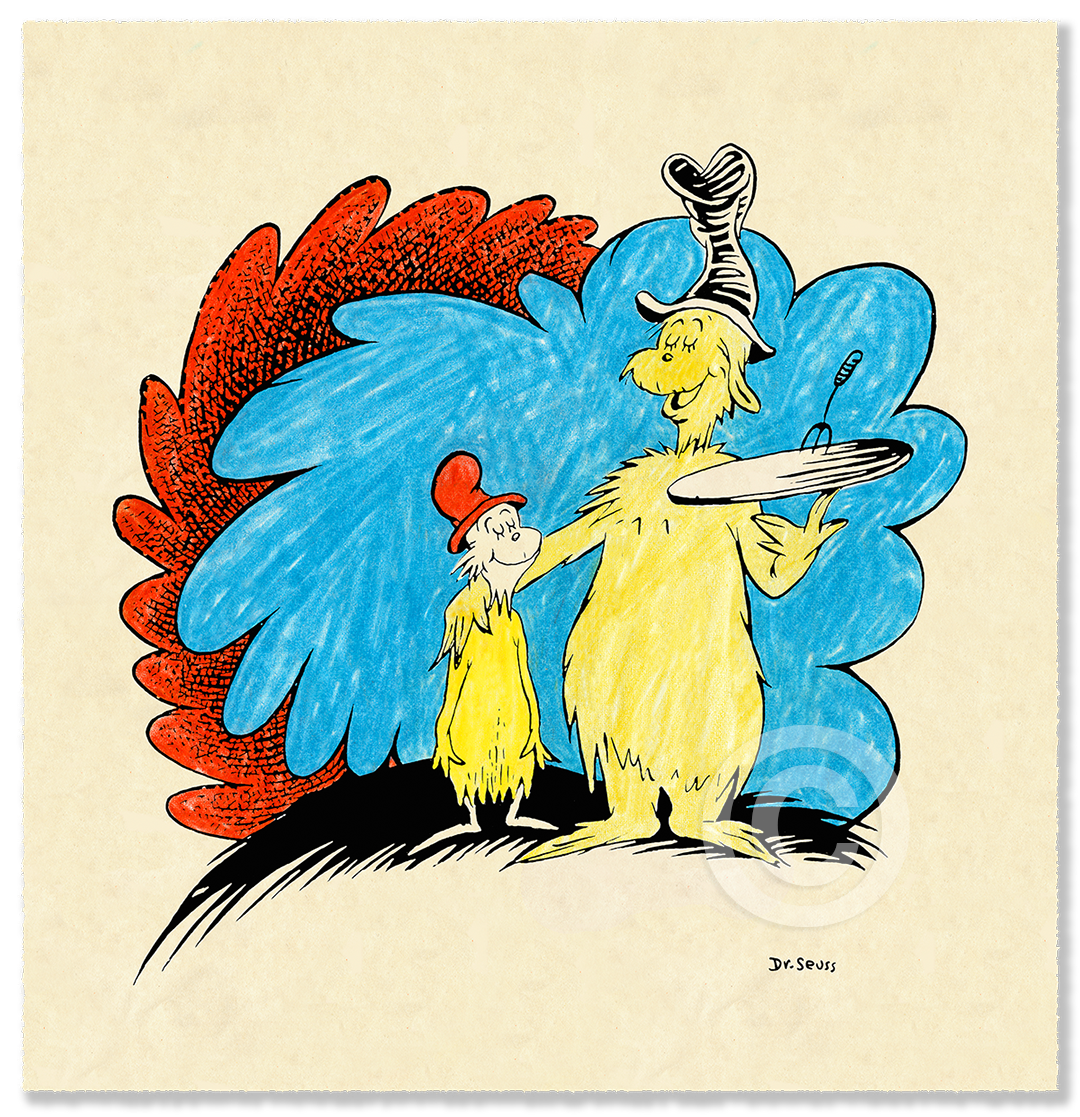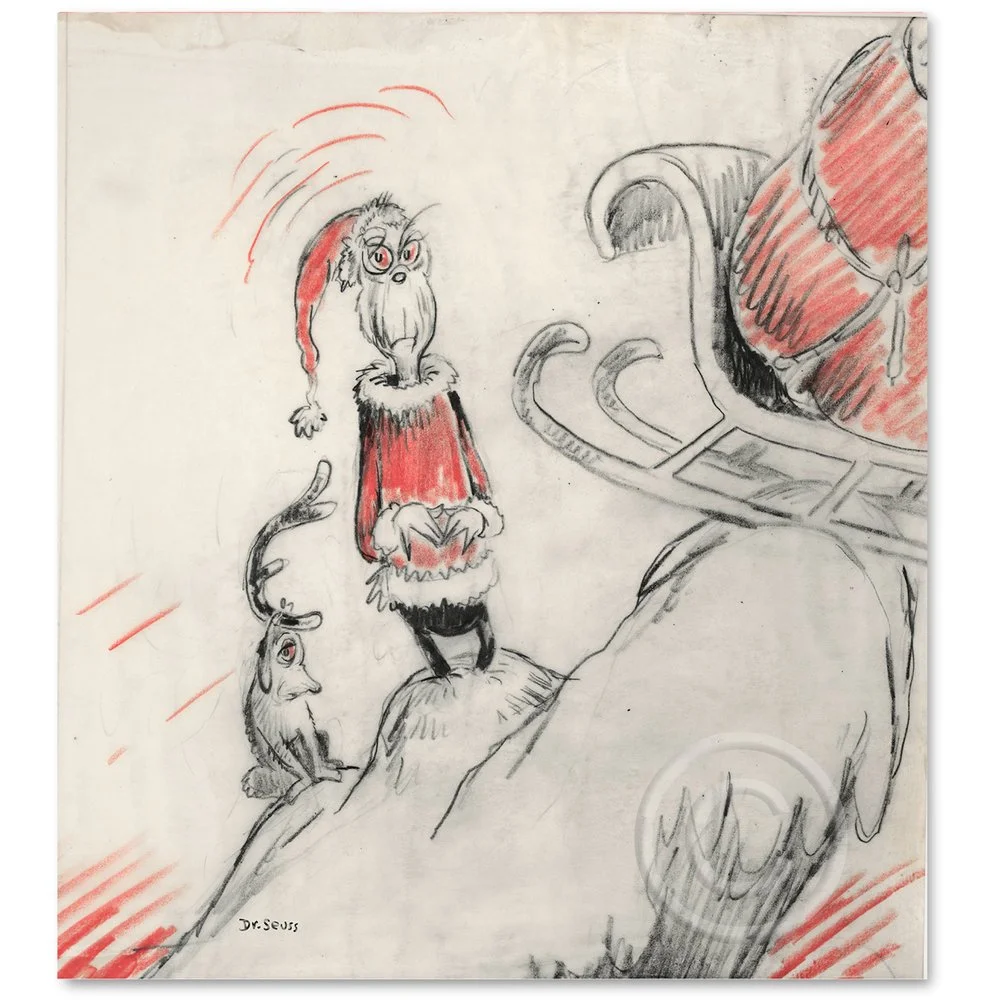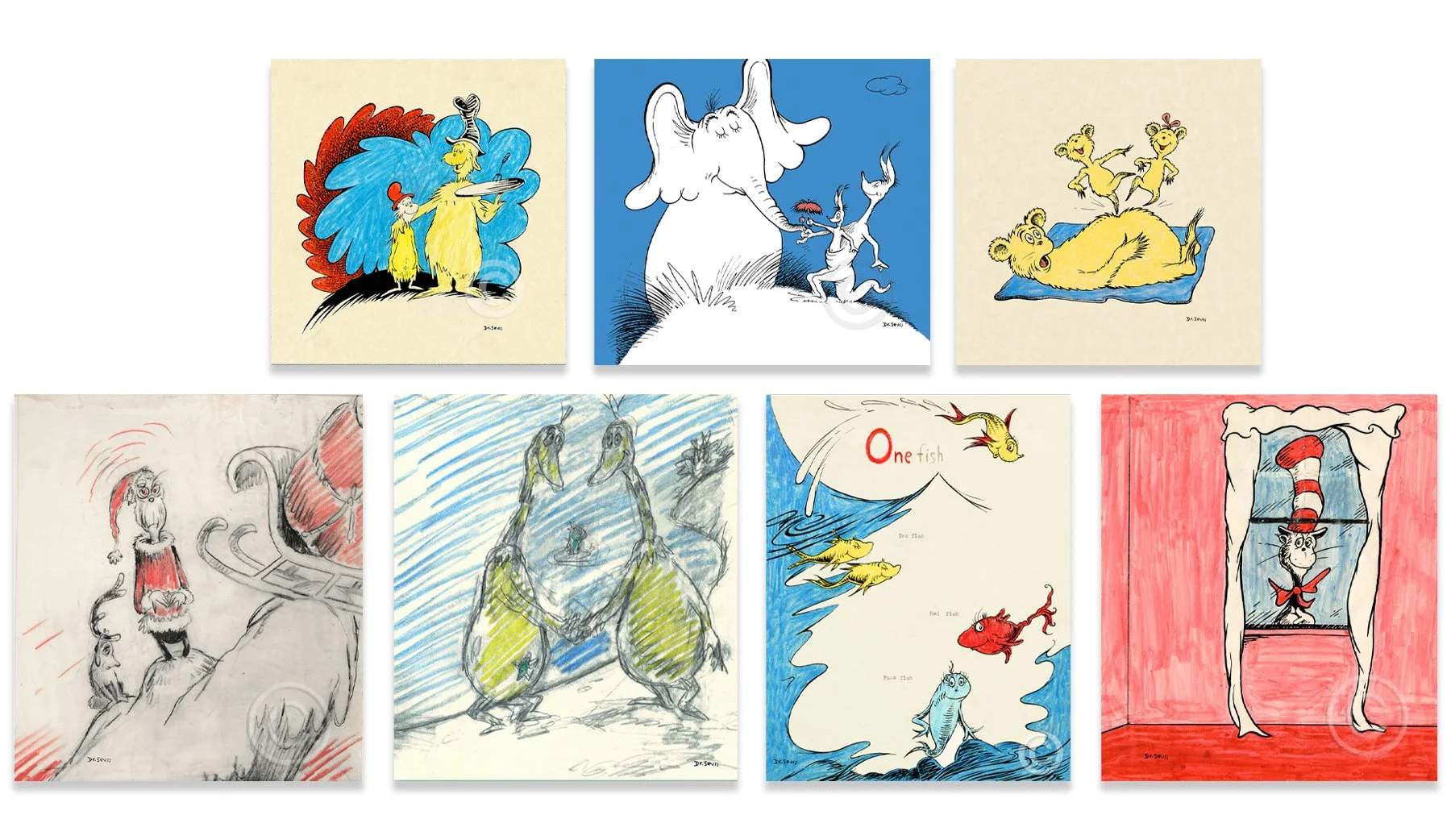Don’t we all want to be
kids at heart?
Ted Geisel, aka Dr. Seuss, was a master at encouraging us to let our guard down so that we may laugh and express ourselves in a way that has no boundaries, expectations or judgement. No matter our age, we can recall the pure joy of being a kid at heart.
Here, in Ted’s final-stage concept drawing, he celebrates what it means to connect with such moments. We can feel the excitement and hear the laughter in the simple pen and ink lines and bold strokes of color that spread across this iconic image.
“It is the laughter of kids. It is the joy of a father. And most of all, it is the exhilaration of connecting back to the childhood spirit that lives within us all. ”
Hop on Pop 60th Anniversary
Pigment Print on acid-free paper
Authorized Estate Edition
Image Size: 29" x 29"
Limited Edition of 395 Arabic Numbers, 99 Patrons’ Collection prints, 155 Collaborators’ Proofs, 5 Hors d’Commerce, 2 Printer's Proofs
60 Special Reserve prints
In this revered book, Hop On Pop, Ted Geisel shows us just how important connection and engagement can be in our most coveted relationships. This insight was so significant that Ted used the Hop on Pop image as the cover of his famous book. He seemed to understand the impact on his life and wanted it to affect others.
Ted Geisel’s (aka Dr. Seuss) personal family
experiences helped shape Hop on Pop
The Geisels’ enjoyed a warm and loving family where there was much interaction and engagement between them. His mother would encourage singing and musical evenings around the piano and his parents encouraged his artistic development.
At an early age, his mother (the daughter of a German baker) would chant pie names as Ted fell asleep. From this he developed a profound love for the cadence of poetry. Ted, in fact, credited his mother for being responsible “for the rhythms in which I write and the urgency with which I do it.”
“Ted’s early childhood doodles of his mother’s pie names”
“Ted’s relationship with his father held a particularly important place in his life. His father, who was Superintendent of Parks in Springfield, Massachusetts, would take Ted on visits to the Forest Park Zoo, allowing him behind-the-scenes access to the animals.”
Later, when Ted was working in New York, his father would send him bills and horns from the zoo animals and Ted would fashion them into new creatures full of Seussian personality. This collection would become known famously as his Collection of Unorthodox Taxidermy.
In the opening pages of If I Ran the Circus, Ted pays homage to his father in a poignant drawing and dedication:
“For Big Ted of Springfield, The Finest Man I’ll Ever Know”
Connection and Engagement are Central to some of the most important Dr. Seuss Characters.
For Dr. Seuss it was important that his characters engage with those around them. The very title of Hop on Pop suggests we do just that, and upon closer look, we see it across all of the 60th Anniversary Works:
Horton 60th Anniversary
Serigraph on Coventry Rag Paper
Authorized Estate Edition
Image and Paper Size: 29” x 32” with deckled edges
Limited Edition of 395 Arabic Numbers, 99 Patrons’ Collection, 155 Collaborators’ Proofs, 2 Printer's Proofs, 5 Hors d’Commerce
60 Special Reserve prints
Horton believes in the Who that no one else could see.
The Sneetches 60th Anniversary Print
Pigment Print on Acid-Free Paper
Image Size: 29” x 26”
Limited Edition of 395 Arabic Numbers, 99 Patrons’ Collection prints, 155 Collaborators’ Proofs, 5 Hors d'Commerce, 2 Printer's Proofs,
60 Special Reserve
The Sneetches learned to connect, engage and come together celebrating similarities as well as differences.
The Cat 60th Anniversary
Mixed-Media Pigment Print on Archival Paper
Authorized Estate Edition
Image and Paper Size: 29" x 25"
Limited Edition of 395 Arabic Numbers, 99 Patrons' Collection, 155 Collaborators' Proofs, 2 Printer's Proofs, and 5 Hors d'Commerce
Sally and her brother encounter very physically the Cat in the Hat and Thing One and Thing Two, and they developed an inner strength of character and understanding of themselves as a result.
Green Eggs and Ham 60th Anniversary
Pigment Print on acid-free paper
Authorized Estate Edition
Image Size: 29” x 28”
Limited Edition of 395 Arabic Numbers, 99 Patrons’ Collection prints, 155 Collaborators’ Proofs, 5 Hors d’Commerce, 2 Printer's Proofs,
60 Special Reserve prints
Sam-I-Am in Green Eggs and Ham cares enough to help change ones perception.
The Grinch 60th Anniversary
Mixed-Media Pigment Print on Archival Paper
Authorized Estate Edition
Image and Paper Size: 29" x 26"
Limited Edition of 395 Arabic Numbers, 99 Patrons' Collection, 155 Collaborators' Proofs, 2 Printer's Proofs, and 5 Hors d'Commerce,
2 Printer's Proofs, 60 Special Reserve prints
The Grinch comes to understand and embrace the spirit of Christmas.
Special Reserve Set of Seven - 60th Anniversary Prints
Serigraph on Paper, Pigment Print on Acid-Free Paper, Mixed-Media Pigment Print on Archival Paper
Authorized Estate Editions
